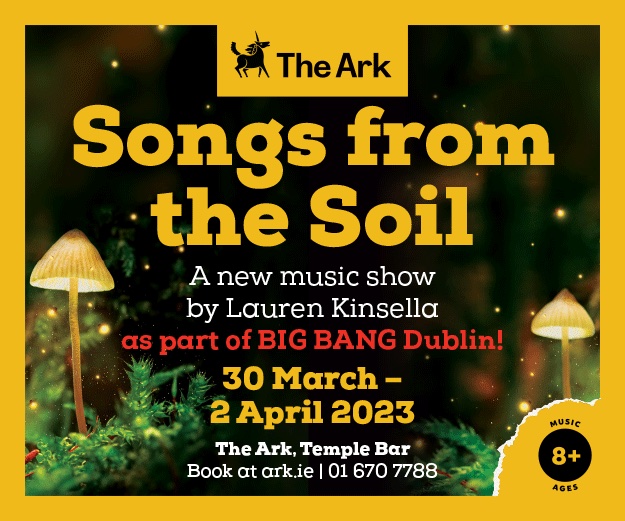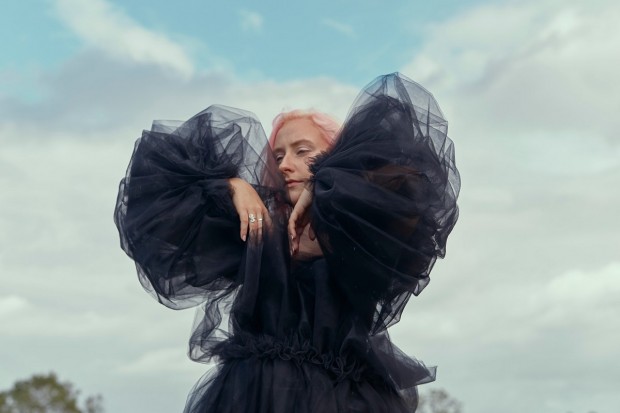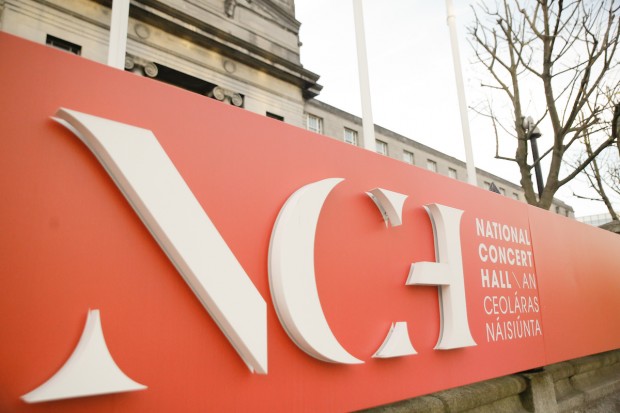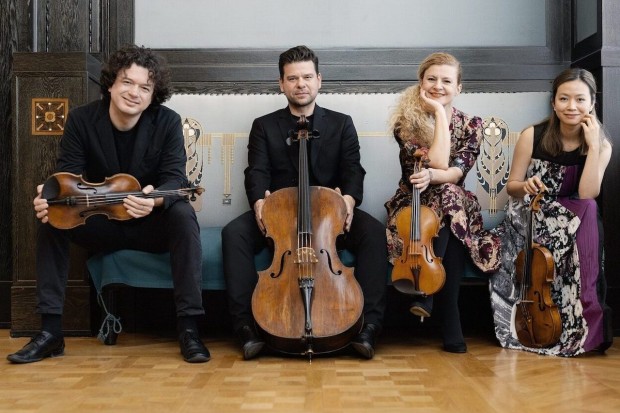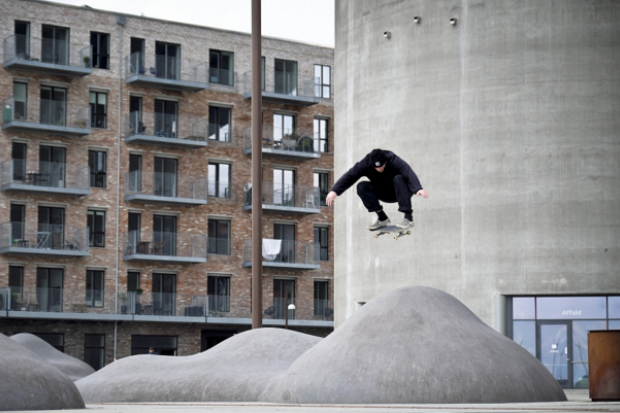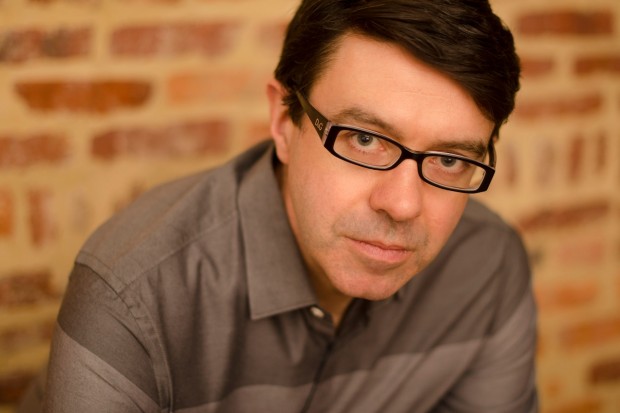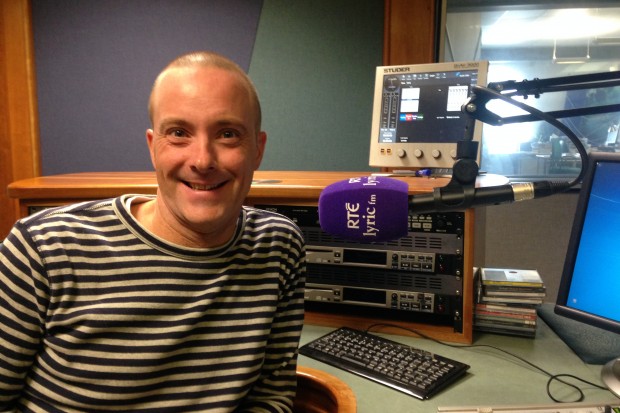
Iarla Ó Lionáird performing at Tradition Now (Image © NCH)
Traditional Psychodrama
The National Concert Hall’s Tradition Now festival took place on 23–28 October. As well as a tribute to piper Liam O’Flynn, who passed away early this year, the festival took the ‘Now’ of its title to heart – incorporating a number of recent developments in the Irish traditional and folk scene. This included a concert in association with FairPlé, a showcase night presented by new folk promoter Quiet Lights, and a collaborative project between Aoife Ní Bhriain, German composer and violinist Florian Willeitner and singer and instrumentalist Eoghan Ó Ceannabháin.
Also on the bill was a performance by Crash Ensemble and Iarla Ó Lionáird, performing music by Ó Lionáird himself, Sam Perkin, an arrangement of ‘Aisling Gheal’ by Donnacha Dennehy and Kate Ellis, and the Irish premiere of a new work by Australian composer Kate Moore. This is not the first time that Crash has worked with Ó Lionáird on contemporary/traditional fusion; in 2011 they released Grá agus Bás on the Nonesuch label, an album of music by Dennehy, including the title track and the song cycle That the Night Come. Christopher Fox, in his Journal of Music review, described the interplay between contemporary and traditional music in the work: ‘not only does Dennehy “set” words, he also composes a new musical setting around and – even more strikingly – out of existing performances of two sean-nós songs’.
Iarla Ó Lionáird and Crash Ensemble
Uncomfortable bedfellows
Yet for this concert, the new music ensemble and traditional music seemed uncomfortable bedfellows – and indeed, the presence of Ó Lionáird and his beautiful performance of his own song ‘Imeacht’ aside, the programme seemed more to gesture towards traditional music as a kind of reference material, rather than engage with it directly.
Sam Perkin’s Pause for string quartet and tape, originally written in 2016 for the Ortús Chamber Festival to commemorate the centenary of the 1916 Rising, followed ‘Imeacht’. It centres around a recording of violinist Mairéad Hickey playing ‘The Foggy Dew’ (a song about the Rising, and the tension between fighting for and against the British), but stretched and slowed to the point of losing all identifying elements – what we are left with is the soundworld of the strings, rich with usually inaudible microtonal harmonies. In his programme notes, the composer describes it as sounding like ‘trains in the distance’; a better description may be waves on the shore heard from under the water, growing, swirling, receding. The string quartet too swirls around these waves, in fragments of the original tune but expanding into its own independent gestures across the piece. It is beautiful, but somehow de-fanged: the effect is almost too sweet. When later the work segues into a vocal rendition of the song by Ó Lionáird and members of the ensemble, accompanied by a hummed drone from the audience, it feels corny rather than genuine, and the combination of new and old an uncritical wholesale lifting rather than real engagement.
Hostile musical terrain
Between this and the new work by Kate Moore was a short arrangement of ‘Aisling Gheal’ by Dennehy and Kate Ellis in which elements of the original tune are stretched outwards through a spectrally composed tape part. It was a quiet, reflective moment, soon shattered by Moore’s Bushranger Psychodrama. The 2017 work was co-commissioned for Ó Lionaird by the National Concert Hall, the Dutch Festival November Music and Symphony Space in New York. He has previously performed it in the Netherlands and New York.
The work has a different perspective on tradition and Irishness, focussing on narratives of colonialism and oppression rather than distinct musical traditions; it sets swathes of text from the Irish-Australian outlaw Ned Kelly’s manifesto to a pulsing, oppressive sonic landscape. In its combination of Ó Lionáird’s distinctive vocal and Moore’s jagged, Dennehy-esque string writing, it is hard not to be reminded of Grá agus Bás, though Bushranger Psychodrama does not refer explicitly to sean-nós the way Dennehy’s work does.
Language is at the heart of this work; it is a setting of Kelly’s own manifesto, essentially a long monologue, and according to the composer, sometimes uses a dialect of Irish spoken amongst early Australian settlers. Though the words are dense, sometimes narrated, sometimes sung, startling phrases emerge: ‘he clad himself in lead’, ‘is my brothers and sisters and my mother not to be pitied’, ‘a parcel of big ugly fat necked wombat headed big bellied magpie legged narrow hipped splawfooted sons of Irish bailiffs’.
This language – in the delivery of which Ó Lionáird seemed to occupy a character and space as far removed from that in Pause as Ireland from Australia – is striking because it does not seem inherently musical. It is abrasive, angry, haunted, imbued with oppression and fear, and the accompanying strings reflect it throughout. ‘Psychodrama’ is the perfect term for this 20-minute scene, a kind of musical rendering of Kelly’s personal demons, battling in a hostile musical world, the aggressive instruments fighting the vocal exclamations.
Published on 6 November 2018
Anna Murray is a composer and writer. Her website is www.annamurraymusic.com.











